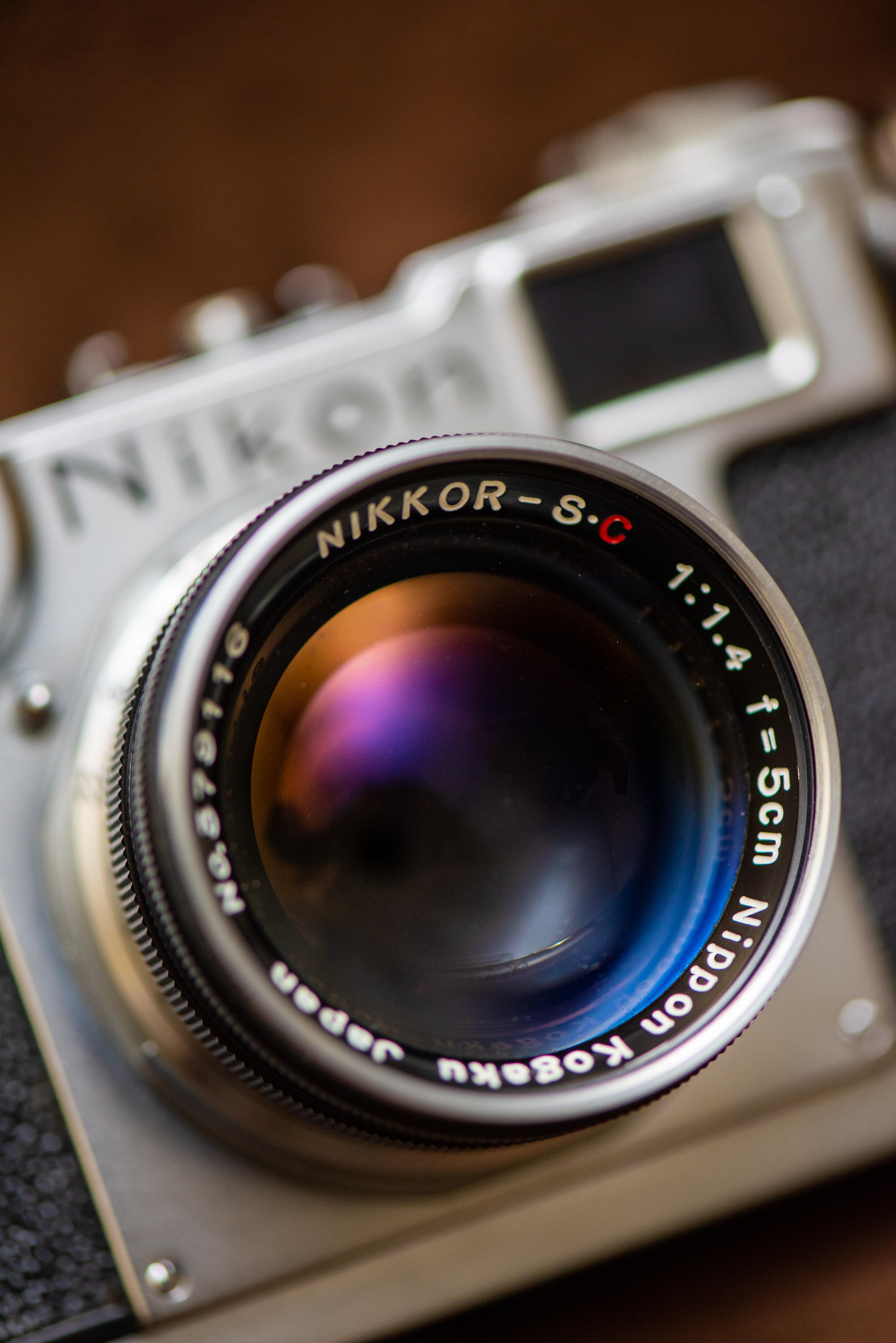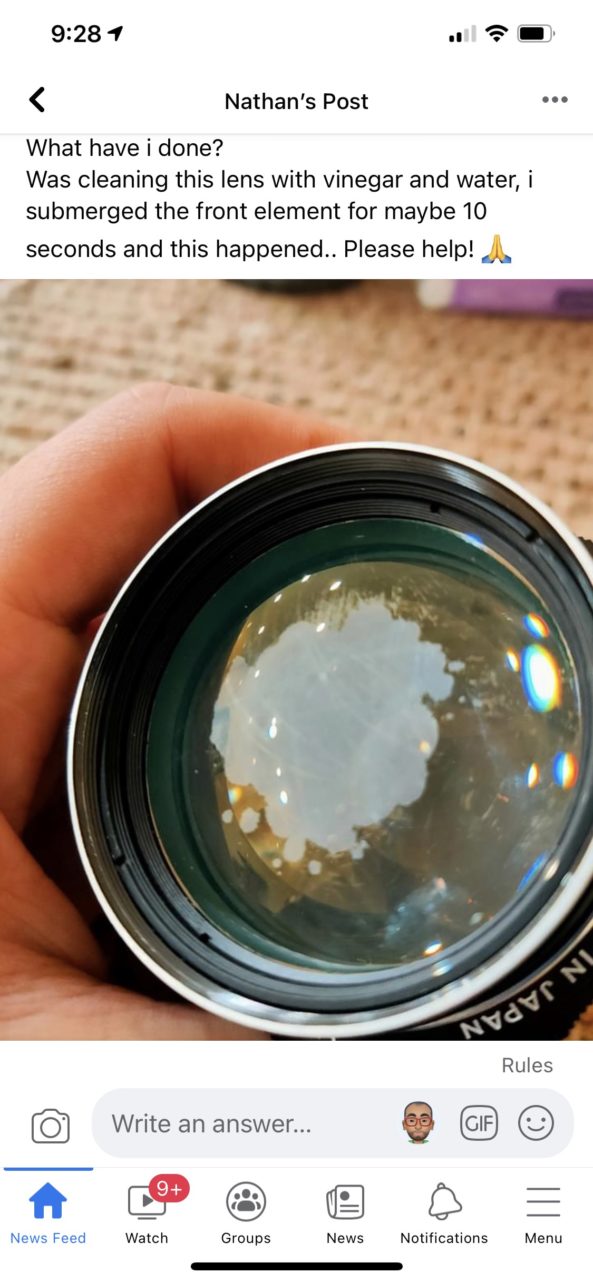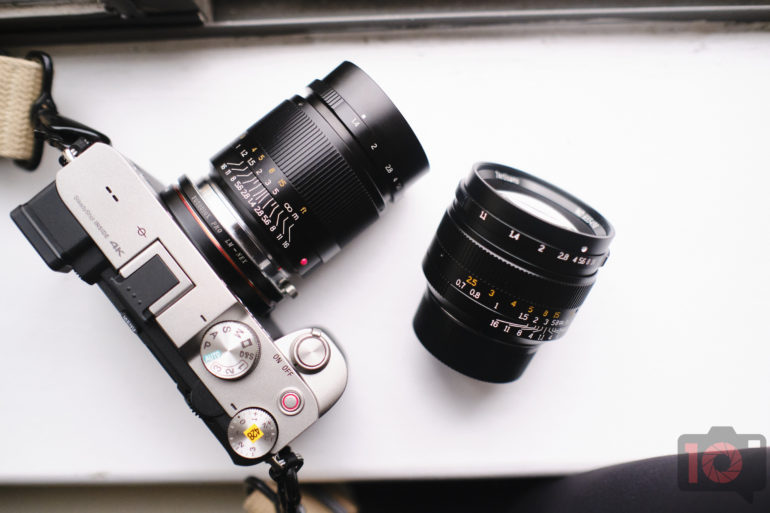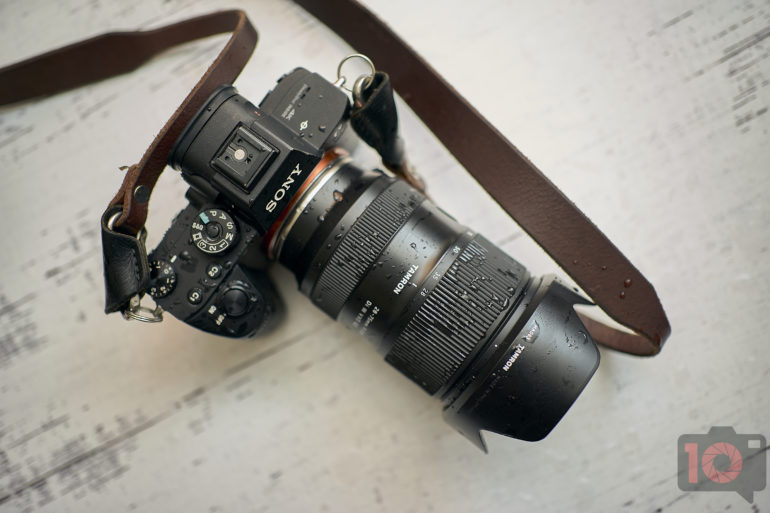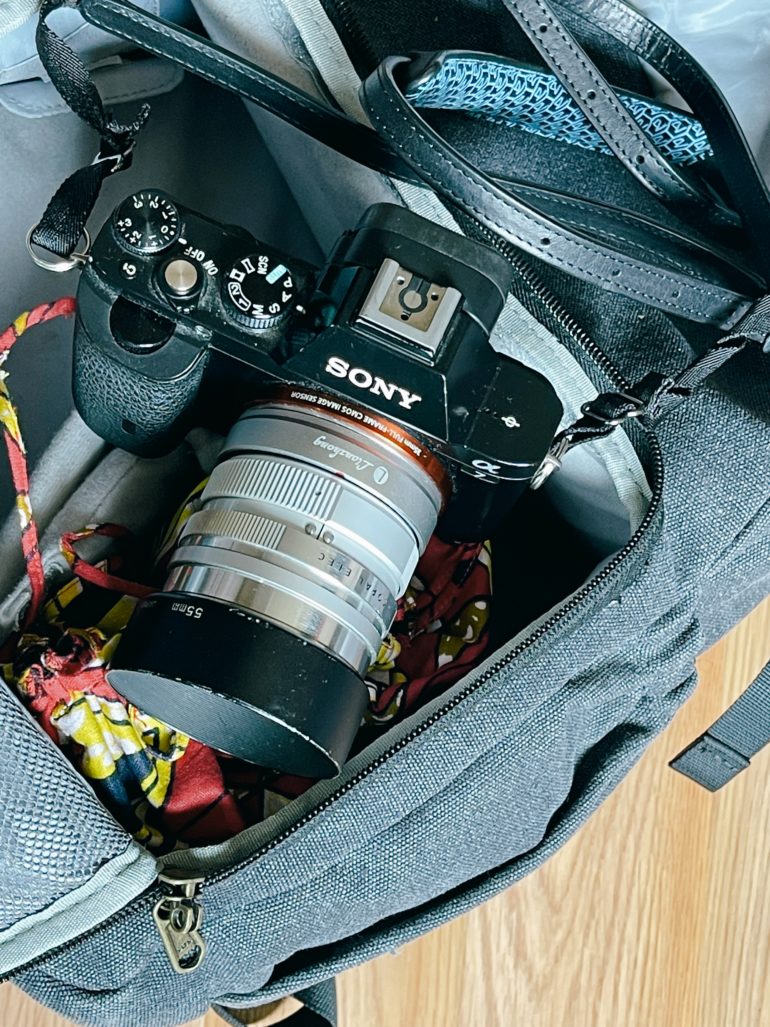I’m sure everyone has done it–cleaning with vinegar, that is. But should you be cleaning your lens with it? The question of how to clean camera lens elements is a big one that causes lots of stress. What if you wear off the coatings? How much cleaning do you truly need to do? If you’re newer to photography or have never done these things, it will be anxiety-inducing. But don’t worry, we’ve talked to tons of pros over the years from various camera companies. But we also know what you shouldn’t do.
View this article with minimal banner ads in our app for iOS, iPad, and Android. Get no banner ads for $24.99/year.
Table of Contents
Don’t Use Vinegar
I remember seeing this thread a long time ago in Facebook group chats and in various ways. Some young photographers probably went to YouTube and found a video from someone not very experienced. There’s a ton of misinformation on YouTube that’s not genuinely tested or respected. So if anything, do lots of research on how to clean your camera lens. Get expert opinions. Better yet, even have a specialized tech do something about it; this is especially the case in regards to questions of how to clean camera lens elements.
What the Pros Use
Lucky for you, we’ve talked to various professionals about how to clean your camera lens for years. Plus, we’ve been taking their advice for many years. Pop Photo, years ago, wrote an article about cleaning a lens with Vodka. Pretty much everyone industry expert we spoke to said that that’s a bad idea for different reasons. Here are some quotes we’ve gotten from professionals over the years on how to clean camera lens elements:
“Here at HQ, we use Methanol Alcohol which cleans great and dries quickly unlike Isopropyl which may leave streaks or spots. I personally would rather see the photographer use Windex instead of Isopropyl Alcohol. Make sure they don’t spray the lens, but rather spray into a cleaning tissue like Kimwipes.”
– Pat Simonetti, Director of Operations, Tamron USA.
In fact, Tamron sponsored an article with us to talk about how to keep your lenses working perfectly. Their lenses are incredibly durable.
However, other manufacturers surely state that isopropyl alcohol is a good alternative if you can’t get your hands on methanol.
How the CIA Cleaned Camera Lenses Years Ago
The big issue with camera lenses can sometimes involve vintage optics. Here’s an article we wrote about what the CIA said many years ago in a declassified document:
The document details the various imperfections. It discusses fingerprints, paint, dirt, etc. These are all things most modern photographers would deal with anyway. But first, you have to get it as clean as possible using air. So they talk about using syringes with air. These are predecessors to Rocket Blowers. But then they get into solvents:
- Benzine is good for removing oil.
- Warm acetone for some adhesives
- Alcohol is fine
- Liquid detergent is fine. This is otherwise known as dishwashing liquid in some cases. This is recommended with hot tap water.
There’s much more to this though, apparently, hydrogen peroxide could also work. According to the folks at Blue Moon Camera, they said in an article the following:
“He has also never used the hydrogen peroxide method but didn’t see any issue with it. He said his only concern is that if you are soaking a cemented stack of optics in that bath there may be a chance that the solution gets between the optical elements and causes separation. For single elements though he figured it would be fine. He also uses a mix comprised of Windex for cleaning, paired with non-abrasive cleaning cloths for wiping fungus off. He also reiterated that fungus sometimes etches in and leaves marks that cleaning won’t help with. He pointed out that the internal coatings of some lenses can be softer than the external coatings and more prone to marring through cleaning, so you have to be careful going into lenses. He said some Leica lenses the internal coatings are so soft that you can polish them right off, which he actually sometimes does in order to remove bad fungus or internal haze, as a polished un-coated optic at that point is better than a hazy one.”
So in summary, what can you use?
- Hydrogen Peroxide
- Isopropyl alcohol
- Ammonia
- Benzene
- Acetone
- Liquid detergent


